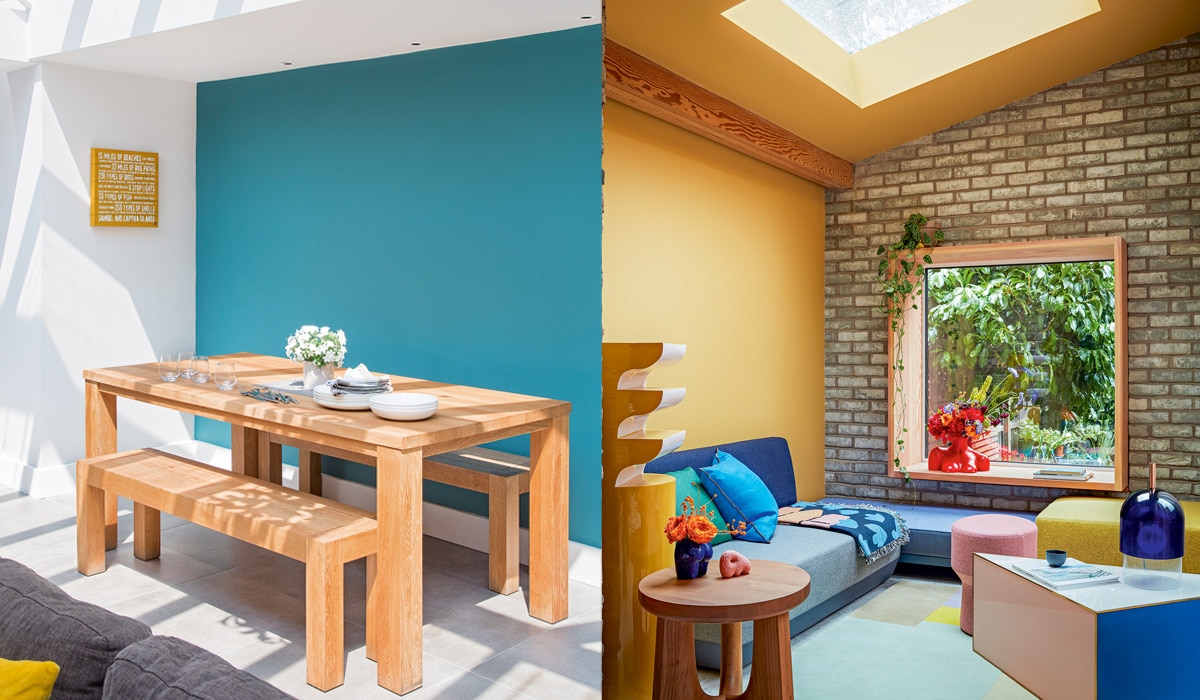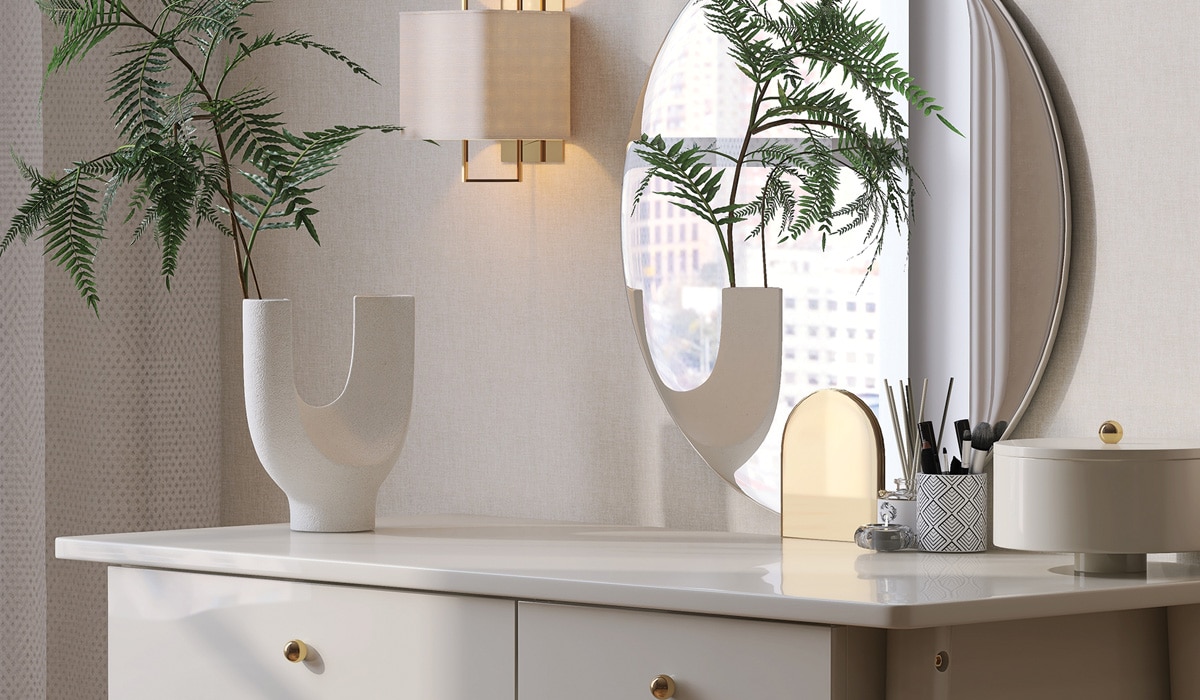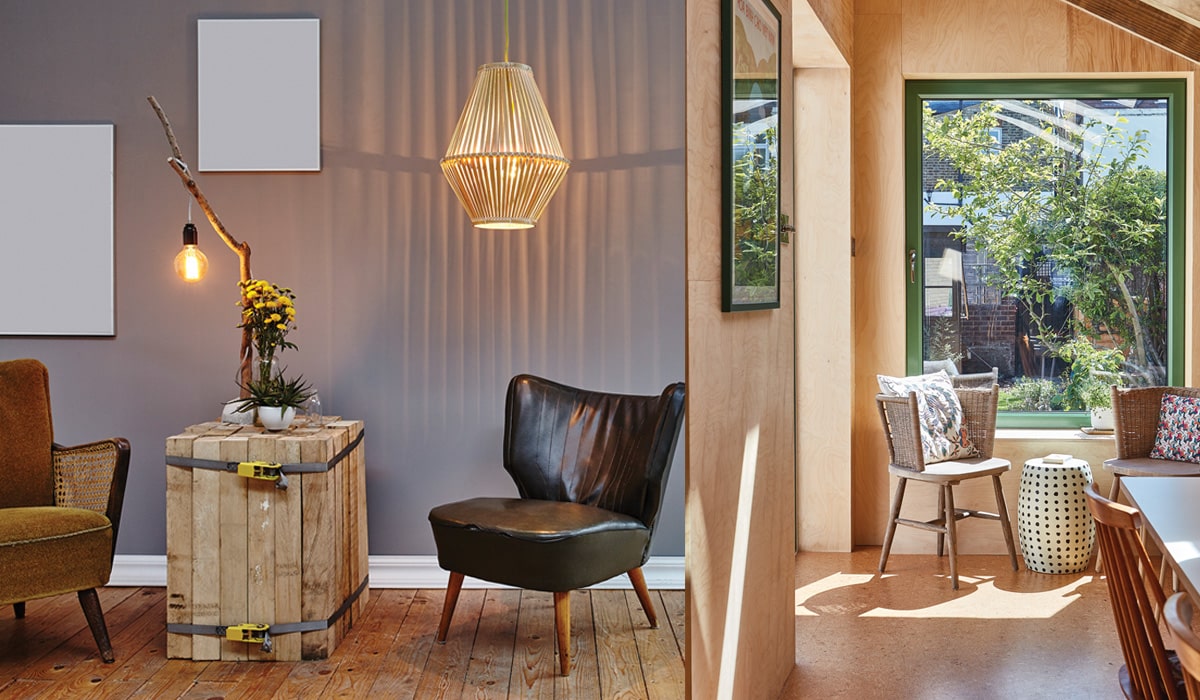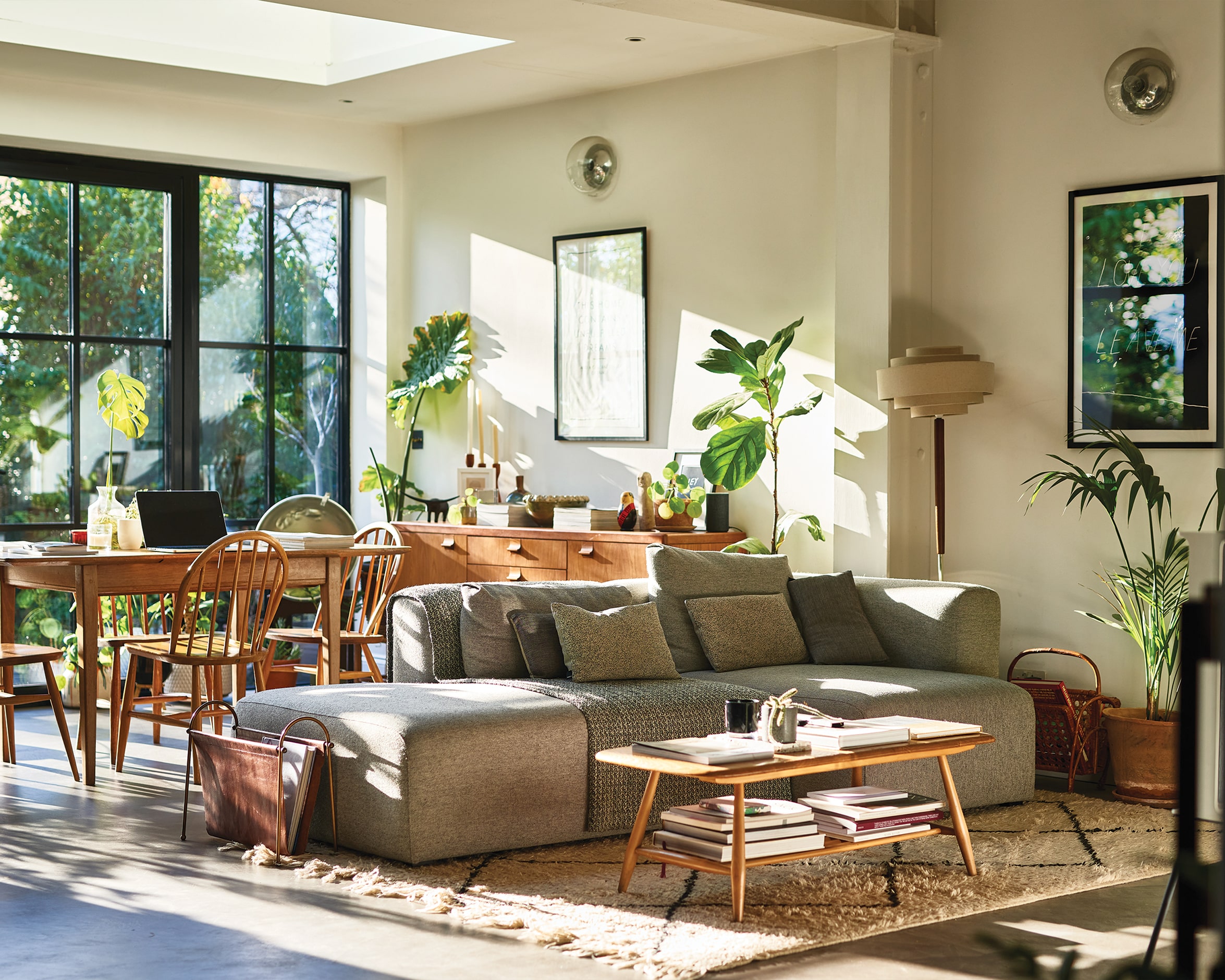When it comes to illuminating interiors, artificial lighting is always second-best. Use these tips to make the most of the natural light in your space.
The presence of natural light can really make or break a room. In fact, it’s said to be the number-one feature people look for when buying a house. Aside from the obvious aesthetics it lends a space, natural light also aids in the absorption of vitamin D – which is especially important as we move into the winter months and naturally have less exposure to sunlight.
From introducing reflective accessories to installing skylights and additional windows, there are many ways to maximise natural light and make your home feel brighter and airier (without breaking the bank).

Perfect the paint shade
Dark paint colours are often used to create cosiness, but they tend to make a space feel small and cramped. Light colours, on the other hand, can help reflect light and make a space feel more open.
White paint is often the first choice for brightening up a room, but brilliant white can make a space feel cold and clinical; opt for an off-white shade for your walls and ceilings to get the best of both worlds. To offset the stark whiteness, you can also introduce pops of colour in the form of furniture and accessories, as well as warm wooden furnishings.

Smart positioning
One of the best ways to make a space feel lighter and brighter is to place reflective materials strategically around the house, as close as possible to a natural light source.
You could do this by incorporating metal accents and accessories or using glossy tiles on walls and floors. Mirrors take first prize, though – interior decorators often use them to create a “second window” effect by positioning a mirror on a wall directly opposite a window. This will not only allow light to bounce around the room, but also give the illusion of more space.
Additional installations
Many estate agents wax lyrical about the positives of a north-facing house, but what’s all the fuss? In South Africa and other parts of the southern hemisphere, north-facing windows are best as they receive direct sunlight throughout the day, even in winter. The same could be achieved with glass sliding doors, so installing a few more north-facing windows and doors could really help.
Ceiling skylights and solar tubes (small reflective pipes which channel sunshine into a room) are the best way of harnessing sunlight as they are upward-facing and allow the space below to be flooded with natural sunlight.

Create open spaces
If you’re looking for a more permanent solution to increase natural light in your home, you can consider removing the walls that divide your kitchen and dining or living rooms. Having fewer walls and dark corners will allow natural light to stream in from nearby windows and doors, helping to brighten the space.

Arrange your furniture strategically
It might seem obvious but when you’re decorating a room, it’s important to ensure you leave enough space for light to come in. For example, avoid placing a couch directly in front of the window as it’ll block the light. If you need to have furniture there, opt for something less bulky, such as a slim chair.

Use artificial lighting wisely
Artificial lighting won’t replace natural light, but you can use it to supplement it. Make sure to use light bulbs that are bright enough to illuminate the entire room. Opt for energy-efficient LED bulbs in warm white, as they contain less blue light and so will have a more relaxing effect on the eyes.
SAY YES TO SUNSHINE
Natural lighting has some great physical, mental, and financial benefits, including:
- Lowering your electricity bill, as it limits your use of artificial lighting during the day.
- Aiding the absorption of vitamin D.
- Boosting your mood, fighting depression, and increasing focus.
- Promoting better sleep, as exposure to natural light during the day can help regulate your body’s sleep cycle.
Words by: Emma Follett-Botha
Photography: Future, Getty Images







